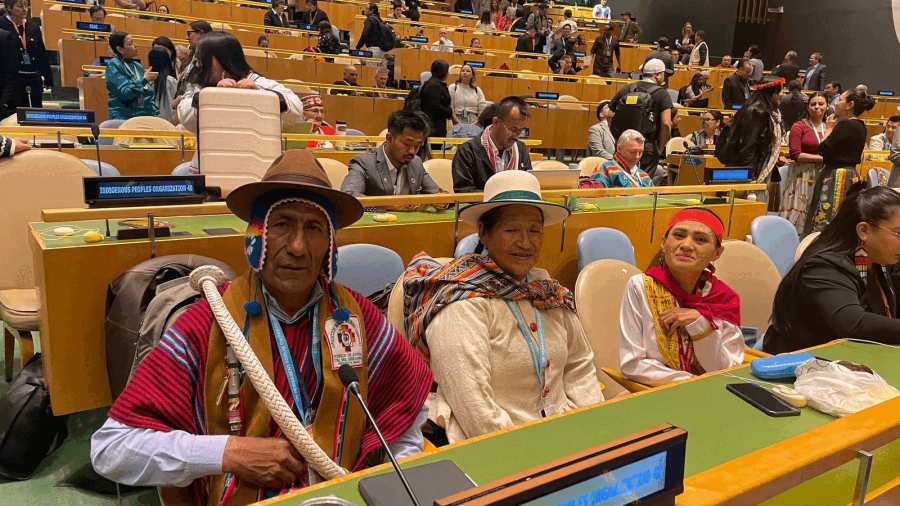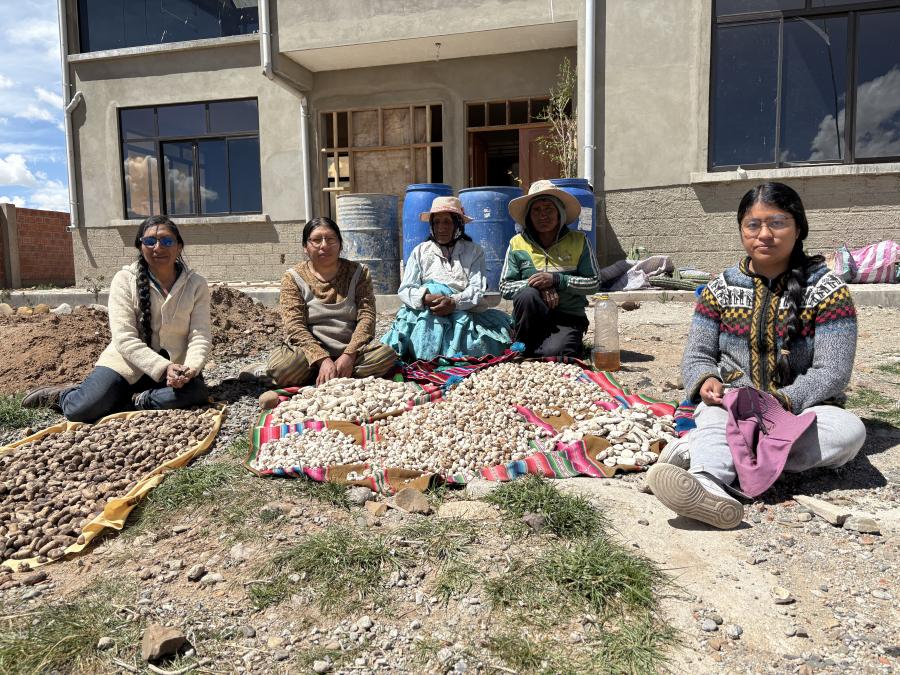The latest loan approved by the Inter-American Development Bank (IDB) to the Bolivian company Transredes, which is partially controlled by U.S.-based corporations Enron and Shell, suggests that if a business’ practices are deemed too shady for the United States, publicly administered overseas lending institutions have no qualms about using U.S. taxpayer money to export those methods to lesser developed countries.Transredes is jointly administered by Shell and Enron, which together have a 25% share in the company. In mid-December, the taxpayer-supported IDB approved a $132 million loan to fund what many environmental and indigenous advocacy groups regard as an environmentally, socially, and culturally destructive gas pipeline project in Bolivia.
The move came over the strenuous objection of civil society groups, and received only a modicum of attention in the press (a Lexis-Nexis search yielded only three articles about the loan – two by the Inter Press Service and one by Business News Americas).
The IDB’s decision to provide funding for the Yabog pipeline becomes deeply puzzling with a probing analysis of these companies’ past records in the region. Both Enron and Shell are involved in other gas and oil pipeline projects in Bolivia. Environmental groups point to the appalling environmental and social records of these ventures, including an oil spill in 2000 that contaminated a major Bolivian water supply. Despite the uproar in the U.S. over Enron’s corruption and dubious accounting practices, the bankrupt firm continues to receive public funding for its out-of-the-spotlight global projects. To date Enron has received approximately $7 billion in public money for its international operations, according to Nadia Martinez, a researcher at the Institute for Policy Studies. The company currently has energy projects throughout Latin America in Argentina, Bolivia, Colombia, Venezuela, Brazil, Panama, Guatemala and Puerto Rico. (See Enron International website for a list of some of these)
Amazon Watch, Friends of the Earth, and the Institute for Policy Studies have produced a joint report and video on past Enron projects in the region, citing an “egregious social and environmental track record in Bolivia.” Their audit also included an appeal to the U.S. government, which controls 30% of the IDB, to reject Enron’s request for funding. The proposed project also violates World Bank policies on both environment impact and indigenous rights. The existing pipeline cuts through the pristine Chiquitano Forest, and its construction has led to illegal logging and hunting. The project received a $200 million loan from the U.S. Overseas Private Investment Corporation (OPIC), which was canceled last year after the company declared bankruptcy. OPIC cited “flagrant” violations of environmental commitments and requested that the Justice Department investigate alleged corruption at Enron’s international branches. OPIC also noted that project managers had flouted agreements to provide 38 indigenous communities with land title or compensation for loss of livelihoods.
The Yabog pipeline expansion will cut through Guaraní and Weehayek indigenous lands, including six legally recognized indigenous community territories, encompassing thirteen Guaraní and three Weenhayek communities. The Guaraní Peoples’ Association has vocally opposed all fossil fuel extraction projects on their land, pointing to the frequent environmental, social, and cultural degradation that has arrived with such projects. According to the indigenous peoples who live in the area, 30 years of activity around the Transredes pipeline has adversely affected local game populations. Since the Weehayek are principally a fishing community, development and resultant pollution has significantly impinged on their means of subsistence. The social problems associated with the influx of 2,200 workers for the pipeline project, such as the sexual harassment of local women, crime, and the burden on local services and resources, are also of great concern to the groups who live there.
President Gonzalo Sanchez de Lozada of Bolivia has been an important actor in this deal, as one of its biggest supporters. He traveled to Washington, D.C. to lobby for the Yabog project, citing internal demand and the revenue to be gained by exporting energy from Bolivia to other nations. The IDB claims that the project will create jobs, increase Bolivia’s exports, create overall economic growth, and help ensure the continuation and stability of the gas and oil industry. But none of the major players have publicly commented on the impact on the indigenous communities who have to live with the project and its consequences. Their fate has been entrusted to corporate and government agents with discouraging track records as far honest dealing and stewardship: President Sanchez de Lozada partially owns a gold mine in the Chiquitano Forest that has been reopened with the advent of the recent pipeline projects in the region. According to the Inter Press Service’s Jim Lobe, the Don Mario Gold Mine was found to be illicitly siphoning gas from the pipeline for its own use.
For a detailed analysis of the Yabog pipeline project and its implications visit the Sustainable Energy and Economy Network website,http://www.ips-dc.org/projects/sustainable-energy-and-economy-network/ , and for information on action you can take visit Amazon Watch (http://amazonwatch.org/news/2009/0904-the-madeira-dams-impacts-and-actions-in-bolivian-territory) or Friends of the Earth (http://www.foei.org/member-groups).


